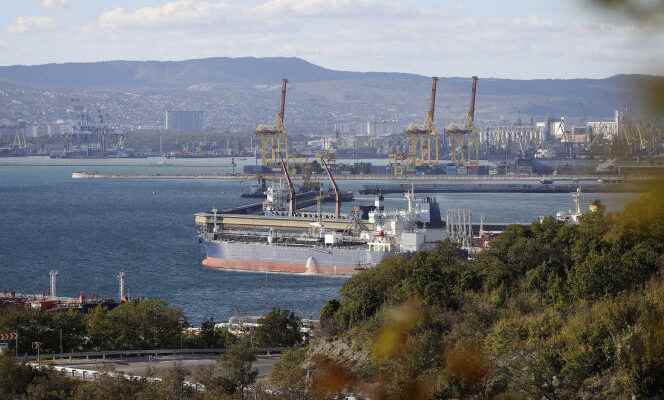Hit Moscow in the wallet without suffering too great a social backlash. This has been one of the challenges for the European Union since the start of the Russian invasion of Ukraine at the end of February. Last measure in date, the embargo on the Russian crude oil enters into force, Monday, December 5, in order to dry up a source of financing of the war. To date, not a drop of black gold from Russia will be allowed on European soil, at least by sea. A first salvo which should be followed on February 5, 2023 by new sanctions, this time on transformed petroleum products, in particular diesel.
“It is a difficult mission for Europe but not impossible”, believes Francis Perrin, research director at IRIS in Paris, who adds that the Twenty-Seven have been preparing for it since the spring. “The downward movement of Russian oil exports is already at work”, he recalls. Evidenced by their fall of 40% for crude oil, between the start of the invasion in Ukraine at the end of February and the month of October, and 20 to 25% for refined products alone.
Thus, in October, the EU was already importing only 1.4 million barrels of Russian crude oil per day, of which a marginal part (0.3 million) transits by pipeline via Hungary and will therefore not be affected by punishments. To this crude oil are added approximately one million refined petroleum products. “In the short term, Europe can find solutions”, estimates Carmine de Franco, head of research at Ossiam, citing the Middle East, the United States, Norway and Africa as other substitute regions for supply. ” In contrast, it will be more difficult for diesel, because the EU still imports a lot of it and we have little production capacity for refined products”, he warns. Many experts expect greater tensions on diesel even if the European Union has taken this data into account and is counting on new refining capacities at the end of this year and in 2023.
Countries have already become more important players in the export of diesel to Europe. “We are indeed seeing a transfer of the value of Russian exports to emerging countries which buy volumes at big discounts, refine them, and make margins by exporting them to Europe”, confirms Marc-Antoine El-Mazzega, director of the energy and climate center of the French Institute of International Relations (IFRI). Since February, India has thus doubled its sales to the old continent, even if this phenomenon still needs to be put into perspective with regard to the totality of the world market and the internal needs of the sub-continent. For its part, Turkey also exports more and more refined products from Russian crude.
You have 54.29% of this article left to read. The following is for subscribers only.
